These soft stones require special care beyond the general jewelry care described above. Many stones won’t be harmed by liquid jewelry cleaners, ultrasonic cleaners and steam cleaning. However, Emeralds, Turquoise, Opals, and Pearls should never be placed in liquid jewelry cleaner or an ultrasonic cleaner, or be steam cleaned. These stones can be damaged by heat, vibrations and the chemicals associated with those cleaners. You should also be vigilant about wiping any Emerald, Turquoise, Opal and Pearl jewelry with a soft cloth after you wear it. Here are some additional recommendations for these special stones.
Pearls
Pearls are organic gems that need special care. You’ll want to be especially careful with your pearls to avoid damaging their glorious glow. The rule for pearl care is last on, first off. So put your pearls on when you’re completely dressed and take them off before you take off anything else. Why? Because perfume, hairspray, alcohol and the ingredients found in many cosmetics and lotions can destroy a pearl’s lustrous surface. After removing them, wipe your pearls with a damp soft cloth. Store your pearls in a soft pouch or lined box to prevent scratches from contact with metal jewelry or harder gemstones. Avoid storing them in dyed fabric to make sure that the fabric dye could bleed onto your pearls. Because pearls are organic, they need to breathe while they’re stored. Don’t store them in plastic bags or boxes, which may emit fumes that can damage pearls. Even the pearl drops on your earrings should be treated with great care. Don’t put pearl jewelry into an ultrasonic cleaner or a liquid jewelry cleaner that isn’t made specifically for pearls. If something gets on your pearls, wipe them gently with a soft cloth dampened with water to clean them.
Opals
Opals are also soft, delicate stones that need extra care. Exposing them to extreme changes in temperature can make them shatter. They’re also very easily scratched and chipped, so you should take special care to avoid dropping them or hitting them against anything. Also, an Opal’s surface can dull from wear, but the stone can usually be repolished to restore its twinkling brilliance.
Turquoise
Turquoise is another stone that despite appearances, is not indestructible. To the contrary, it’s a softer stone that’s easily scratched or cracked. Avoid wearing your turquoise jewelry anywhere it could be scratched or dinged. Taking some other precautions will ensure that you can enjoy your turquoise jewelry for years to come.
Avoid exposing your turquoise to oil, grease, sweat and chemicals. Cleaners and common household items can change the stone’s color. Don’t put turquoise jewelry into an ultrasonic jewelry cleaner or a liquid jewelry cleaner. Don’t let silver polish touch the stone because it contains acids that can damage your stone. Avoid the stone when cleaning your jewelry’s silver setting as well. Don’t wear turquoise into a pool or otherwise expose it to chlorine. Even soap can alter turquoise’s color – so don’t use anything other than water to clean it. Use a damp soft cloth to clean your turquoise after wearing it guard against even inadvertent exposure. Treat your turquoise like pearls – last on, first off – meaning all perfume, lotion and makeup goes on before your jewelry. Avoid temperature extremes that can damage the stone as it expands and contracts. Store turquoise jewelry in a soft, undyed pouch in a temperate place.
Emeralds
Emeralds are softer than sapphires, rubies and diamonds. Because virtually all emeralds contain natural inclusions and some internal fractures, they’re somewhat unstable and prone to chipping or breaking. Emeralds can be oiled to enhance their surfaces and resins or other materials are used to fill fractures in the stones. While Mindy doesn’t knowingly use treated emeralds, some experts estimate that over 90% of all emeralds have been treated. That’s why you should care for emeralds as though they’ve been treated. Avoid exposing your emeralds to heat that might worsen any existing fractures, including steam or ultrasonic cleaning. Also avoid chemicals and bright light that can damage or dissolve the materials that were used to treat the stone. Clean your emeralds with a soft brush or cloth and warm water containing mild fragrance and additive free soap. Store your emerald jewelry in a soft pouch placed inside a box for added protection.




